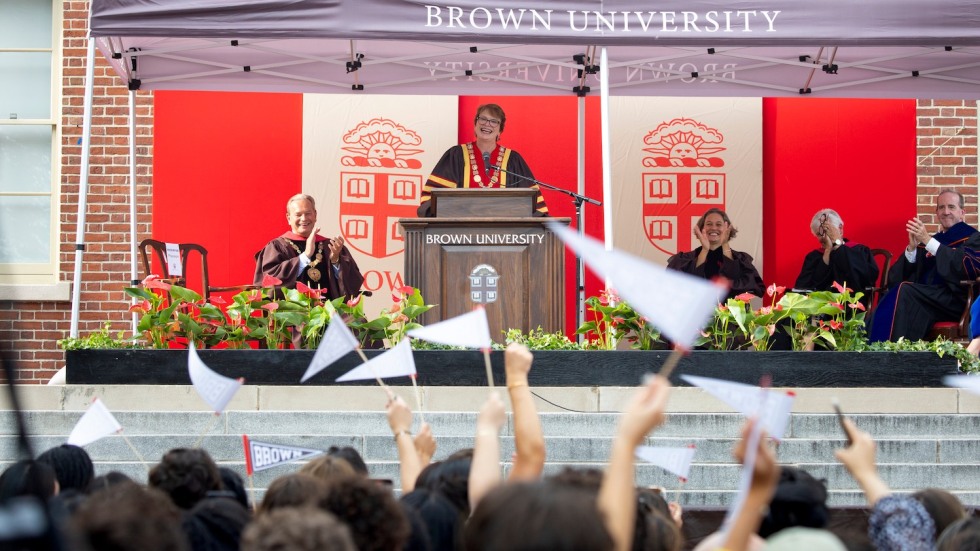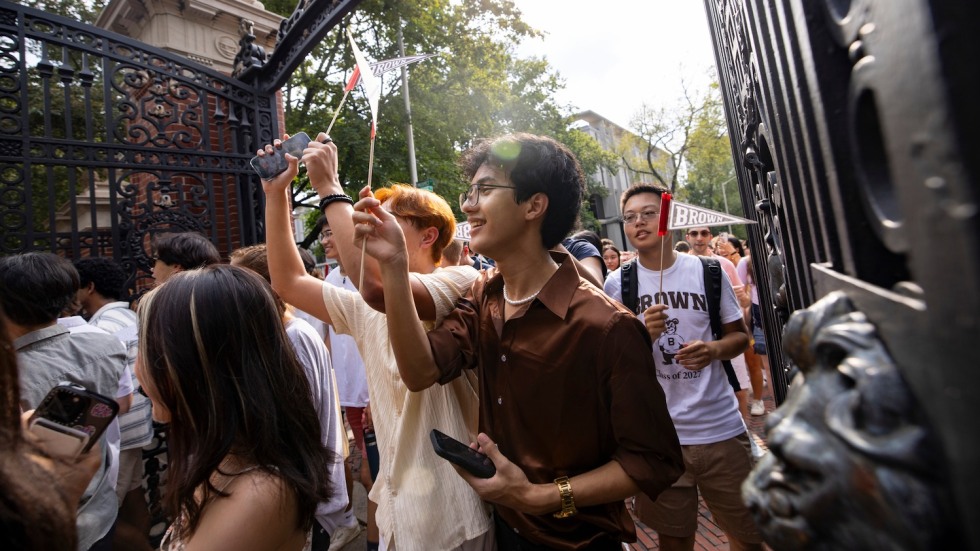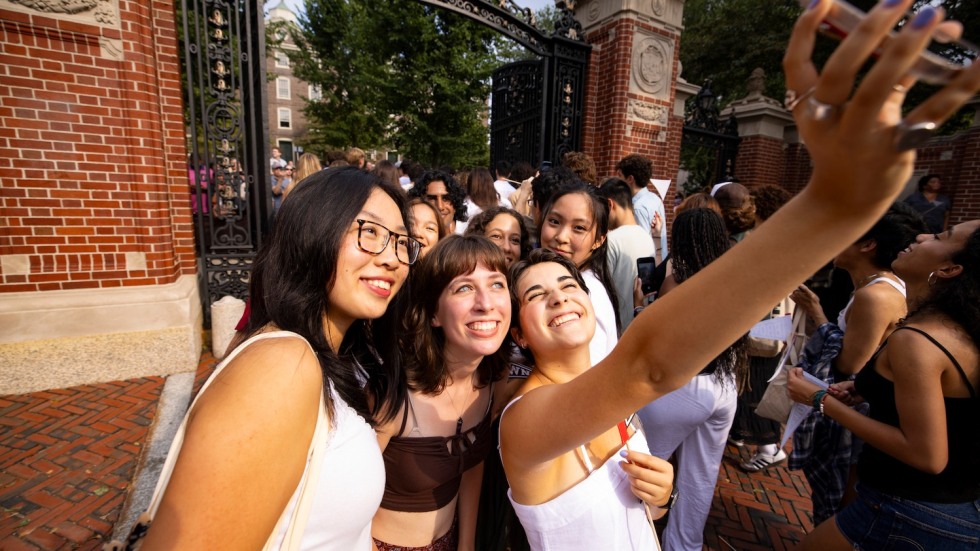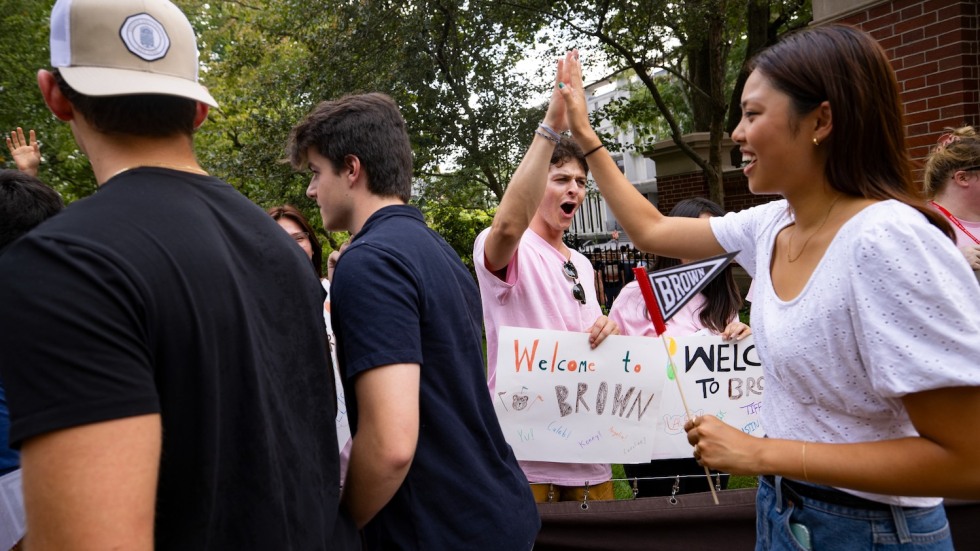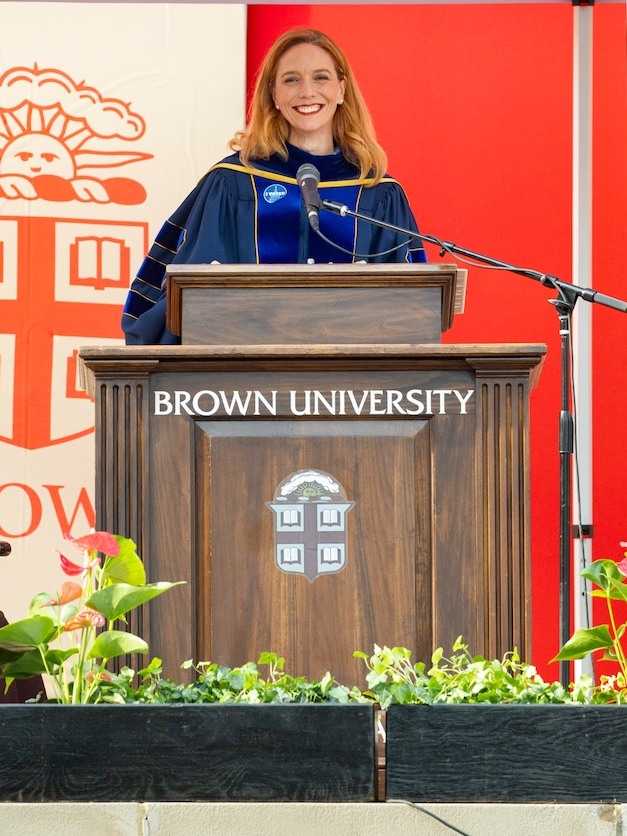From the podium, Paxson acknowledged that climate change ranks among the biggest concerns on campus: There are at least a dozen climate- and sustainability-focused student organizations, and many Brown graduates go on to pursue careers in sustainable policymaking, climate advocacy and more.
That was why, she said, she had invited one of the globe’s foremost climate experts — Professor Kim Cobb, director of the Institute at Brown for Environment and Society — to give a keynote speech.
In an address titled “Your Climate Inheritance,” Cobb, an expert on coral reefs’ response to rising ocean temperatures, didn’t shy away from the truth: That the most recent summer of fires, floods and heat waves across the globe portends difficult challenges ahead. But rather than focusing solely on the bad news, Cobb also shared some good news: Future generations are better equipped than ever to confront climate change.
“You’ve inherited the most complete picture of our climate past, present and future, thanks to decades of research, some conducted right here at Brown,” Cobb told students. “This allows for evidence-based decision-making about our climate and energy future that will save lives and ensure continued prosperity for as many as possible, for generations to come.”
Cobb said students have also inherited a global network of millions of so-called “climate people” — experts and advocates who, like Cobb, “just can’t, or won’t, shut up about climate change.” Scholars aren’t the only “climate people,” Cobb was quick to point out: among that network are people like Class of 2022 graduate Zanagee Artis, founder of the youth-led climate justice organization Zero Hour.
“Climate people,” Cobb said, have been key to building the momentum needed to stop global warming, and even initiate cooling, by the middle of the 21st century. And, she said, they’ve been crucial in shaping Brown’s own sustainability goals: It was students, after all, who rolled up their sleeves to transform an old carriage house into an Urban Environmental Lab in 1978, who founded the first Global Warming Information Week a few years later, and who urged the University to adopt a net-zero emissions pledge in the 2000s.
Cobb entreated students from all disciplines to continue fighting for sustainability action at Brown and beyond.
“We need chroniclers and storytellers and sensemakers of this unique moment in time,” Cobb said. “We need policymakers and economists and doctors. We need big data wranglers and technology innovators and finance gurus. We need urban planners, psychologists, and carbon sequesterers. We need teachers and artists and lawyers. …Let us work together, in community and shared purpose, to ensure that our climate inheritance to the next generation is as large, as enduring, as it can possibly be.”
